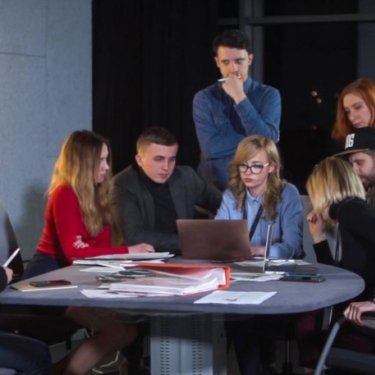Ukrainian court tries to force investigative reporters to reveal their sources

As the confidentiality of sources is essential for investigative reporting, Reporters Without Borders (RSF) is very concerned about a Ukrainian court order that would force journalists with the investigative TV programme “Skhemy” to surrender all documents relating to one of their most sensational stories. Their appeal could be heard next week.
The story, about then President Petro Poroshenko’s trip to Maldives in January 2018 and the astronomical sums that he and his companions spent, caused a major outcry in Ukraine. “Skhemy” is produced by the US-funded broadcaster Radio Free Europe/Radio Liberty and is broadcast on UA:Pershyi, a Ukrainian public TV channel. Mikhail Tkach, Natalia Sedletska and the other investigative journalists at “Skhemy” are fighting to protect their sources and hope their appeal will be heard on 5 November although no appeal is possible, according to the lower court that issued the ruling on 17 October.
The ruling ordered the “Skhemy” collective, which specializes in investigating corruption, to provide the police with all the documents relating to this story within a month. The journalists have refused, thereby exposing themselves to the possibility of a police raid and search.
“This judicial interference into the work of journalists violates the confidentiality of their sources, which is nonetheless guaranteed by Ukrainian and European law,” RSF’s Eastern Europe and Central Asia desk said. “This episode is all the more disturbing because it seems to perpetuate practices that appeared during the recent election campaign. We urge the Ukrainian courts to reconsider this decision. We also call on Ukraine’s new authorities to precisely restrict the exceptions to the confidentiality of journalists’ sources that are admissible under the law.”
As well as the threat to the confidentiality of their sources, the staff at “Skhemy” think the court order requires them to surrender an excessive amount of information.
The court order was issued as part of a criminal investigation into the story’s claim that Poroshenko and his guests used forged documents to cross borders when they travelled incognito to Maldives from 1 to 8 January 2018. Poroshenko has denied using forged papers. Entitled “Mr Petro Incognito,” the story claimed that the trip cost at least half a million dollars, causing outrage in Ukraine, which is one of Europe’s poorest and at the same time most corrupt countries.
This is not the first time that “Skhemy” has been the target of an order of this kind. In September 2018, Ukraine’s prosecutor-general persuaded a court to give him access to the mobile phone dataof the collective’s well-known editor, Natalia Sedletska.
Ukraine is ranked 102nd out of 180 countries in RSF’s 2019 World Press Freedom Index.



